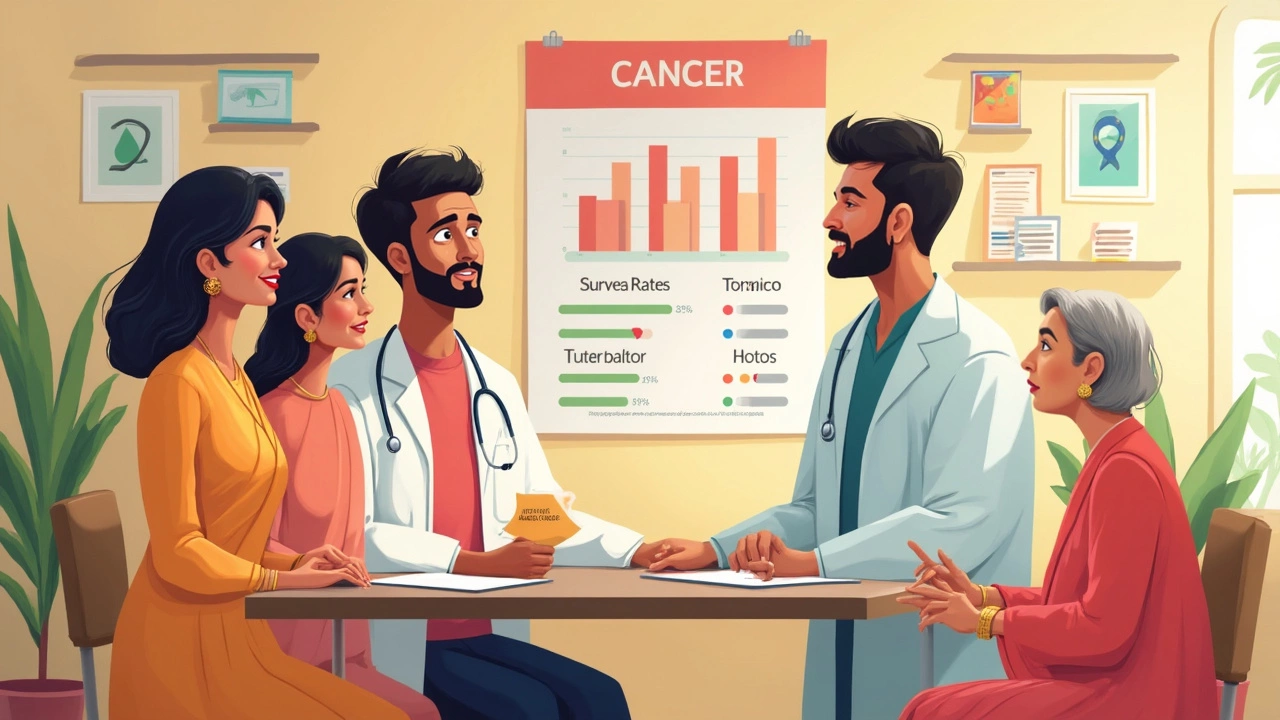High Survival Cancer: What Works and What to Expect
When we talk about high survival cancer, cancers with a high percentage of patients living five years or more after diagnosis. Also known as curable cancers, these conditions respond well to early detection, modern treatment, and ongoing rehabilitation. It’s not magic—it’s science, timing, and support working together. Think of it like fixing a broken engine: if you catch the problem early, use the right tools, and follow up with maintenance, the car runs again. That’s what happens with cancers like thyroid, prostate, testicular, and early-stage breast cancer. Survival isn’t just about living longer—it’s about living well.
What makes one cancer have a high survival rate and another not? It’s not just the type. It’s cancer treatment, the combination of surgery, radiation, chemotherapy, and targeted therapies tailored to the patient. It’s also cancer rehabilitation, the physical and emotional recovery process that helps people regain strength, mobility, and confidence after treatment. Many people don’t realize rehab isn’t optional—it’s essential. After surgery or chemo, your body needs help rebuilding. That’s where physiotherapy, breathing exercises, gentle movement, and mental health support come in. These aren’t side notes—they’re part of the cure.
And it’s not just about the body. cancer recovery, the long-term process of returning to normal life after treatment ends includes sleep, nutrition, stress management, and social connection. Studies show people who move regularly after treatment, eat real food, and talk about their feelings live longer and feel better. You don’t need to be perfect. Just consistent. A walk every day. A protein-rich breakfast. Talking to someone who gets it. These small things stack up.
What you’ll find in these posts isn’t hype. It’s real talk from people who’ve been through it. You’ll see how knee replacement recovery shares lessons with cancer rehab—both need patience, movement, and mental resilience. You’ll learn why anger after open-heart surgery isn’t unusual—it’s biological. You’ll find out how herbs can help or hurt, how supplements like Vitamin D and Ashwagandha support healing, and why timing your meals matters even after cancer treatment. These aren’t random articles. They’re connected. All of them point to one truth: recovery isn’t just about killing the disease. It’s about rebuilding the person.
-
25
Curious about which cancers have the highest survival rates? Some types, like papillary thyroid cancer, have a 95% survival rate or higher, especially when caught early. This article breaks down which cancers are the most treatable, what makes them so, and what you should know about early detection. You'll also get tips on recognizing symptoms and talking to your doctor about screening. Clear, direct info—no jargon.
